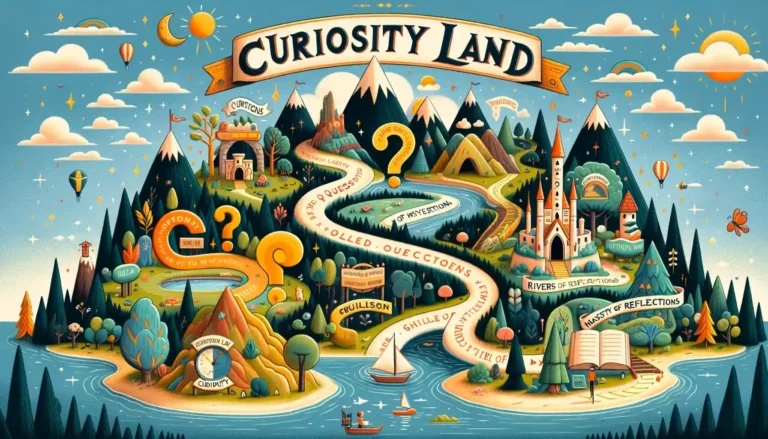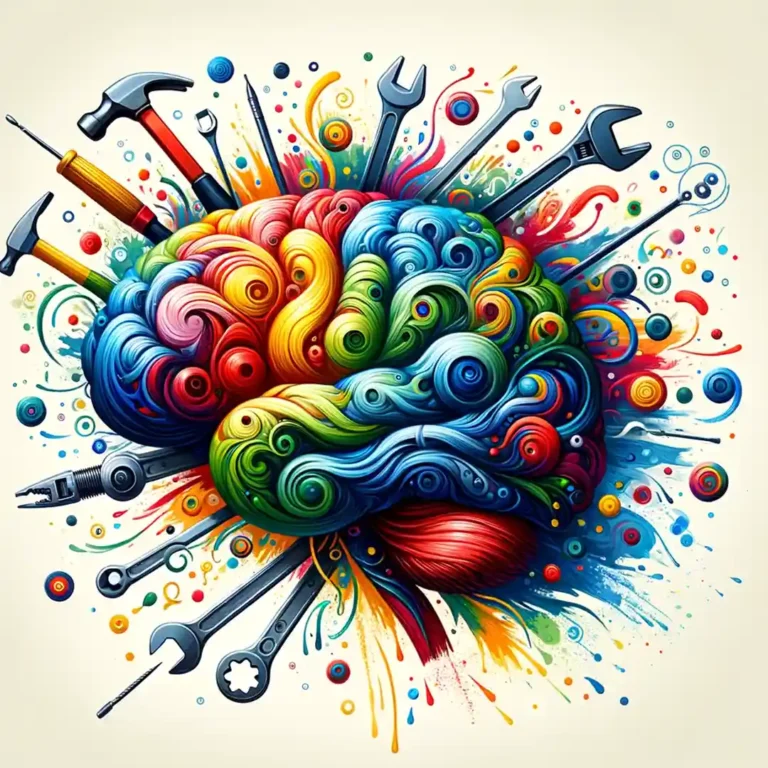A Journey from Fixed to Growth Mindset Lesson Plan
Today’s we emabard on an insightful journey exploring a growth mindset lesson plan. By understanding these mindsets, students will learn how their attitudes towards challenges, effort, and feedback shape their learning and personal growth. This lesson helps us recognize where we stand and helps us unlock our potential to embrace challenges, learn from criticism, and celebrate the success of others as a source of inspiration. Through self-assessment, reflection, and interactive activities, we will discover how to shift towards a growth mindset, fostering a resilient, curious, and motivated approach to learning and life.
Learning Goals
- I will be able to explain the differences between fixed and growth mindsets and identify which mindset I predominantly have.
- I will be able to recognize the impact of mindsets on learning, challenges, and personal development.
- I will be able to assess my own mindset through a self-assessment activity, identifying areas of strength and opportunities for growth.
- I will be able to develop strategies for embracing challenges, value effort, learn from feedback, and draw inspiration from others’ successes.
Materials
Understanding Fixed and Growth Mindsets
Process
- Fixed vs. Growth Mindset Comparison: Using the handout “Understanding Growth and Fixed Mindsets,” discuss the characteristics and impacts of each mindset on behavior and achievement.
- Mindset Self-Assessment: With the teacher’s guidance, students will individually complete the Mindset Self-Assessment provided, scoring themselves honestly to gain insight into their own mindset tendencies. This activity serves as a personal reflection tool, emphasizing that the goal is personal growth, not judgment.
- Reflection Questions: Have students complete the reflection questions. If desired, conduct a class discussion around their reflections.
Understanding Growth and Fixed Mindsets
In the quest for personal and academic success, the concepts of growth and fixed mindsets play pivotal roles. These mindsets, as researched and popularized by psychologist Carol Dweck, significantly influence how individuals approach challenges, failure, and learning. This article will explore the characteristics of each mindset and their impacts on behavior and achievement, aiming to provide a clear and straightforward comparison.
Fixed Mindset: The Belief in Innate Abilities
Individuals with a fixed mindset believe that their intelligence and talents are innate traits that cannot be developed. They see their capabilities as static, leading to behaviors and attitudes that can hinder growth. Key characteristics of a fixed mindset include:
- Avoiding Challenges: People with a fixed mindset often avoid challenges to protect themselves from the risk of failure, which they see as a reflection of their unchangeable abilities.
- Giving Up Easily: Faced with obstacles or setbacks, those with a fixed mindset are more likely to give up, as they interpret these difficulties as evidence of their lack of inherent talent.
- Seeing Effort as Fruitless: They tend to see effort as pointless when success isn’t guaranteed, believing that true talent shouldn’t require hard work.
- Ignoring Constructive Criticism: Feedback and constructive criticism are often dismissed by individuals with a fixed mindset, as they prefer to remain within their comfort zone.
- Feeling Threatened by Others’ Success: Successes of peers can be seen as a threat, leading to feelings of envy and insecurity, rather than as motivation to grow.
Growth Mindset: The Power of Potential
Conversely, a growth mindset is based on the belief that intelligence and abilities can be developed through dedication, hard work, and perseverance. This mindset fosters a love of learning and resilience that is essential for great accomplishment. Characteristics of a growth mindset include:
- Embracing Challenges: Individuals with a growth mindset are likely to embrace challenges, seeing them as opportunities to learn and improve.
- Persisting in the Face of Setbacks: They view setbacks as part of the learning process and are more inclined to persist through difficulties.
- Valuing Effort as a Path to Mastery: Effort is seen as necessary for growth and mastery, not as a sign of weakness or lack of talent.
- Learning from Criticism: Feedback and constructive criticism are welcomed as tools for learning and development.
- Finding Inspiration in the Success of Others: Instead of feeling threatened, they find inspiration and valuable lessons in the successes of others.
Impact on Behavior and Achievement
The mindset an individual adopts can significantly impact their behavior, learning, and ultimately, their success. A fixed mindset may limit one’s achievements by fostering a fear of failure and avoiding challenges. In contrast, a growth mindset can enhance resilience, encourage a proactive approach to learning, and lead to higher levels of achievement.
Shifting from Fixed to Growth Mindset
It’s possible to develop a more growth-oriented mindset by:
- Acknowledging and embracing imperfections.
- Viewing challenges as opportunities.
- Persisting in the face of setbacks.
- Valuing effort as a path to mastery.
- Using criticism as a learning tool.
- Finding lessons and inspiration in the success of others.
Conclusion
The distinction between growth and fixed mindsets offers valuable insight into our attitudes towards learning and failure. By understanding and cultivating a growth mindset, individuals can unlock their potential, overcome challenges, and achieve their goals. It’s not just about working harder but about working smarter, with a belief in growth and a commitment to learning as lifelong processes. Encouraging this mindset, especially from a young age, can pave the way for continued personal and academic success.
Activity: Mindset Self-Assessment
Objective:
This activity aims to help students recognize their own mindset tendencies towards learning, challenges, and failure. By understanding whether they lean more towards a fixed or growth mindset, students can identify areas for personal development and begin working towards a more growth-oriented approach.
Instructions:
Read each statement below and decide how much you agree or disagree with it on a scale of 1 to 5, where 1 means “Strongly Disagree” and 5 means “Strongly Agree”. Be honest with your answers; this assessment is for your personal insight and growth.
Self-Assessment Statements:
- Challenges and Difficult Tasks
- I tend to avoid challenges because I’m afraid of failing.
- When I encounter something difficult, I give up easily.
- I like to tackle challenges because I learn something new from them.
- I persist in solving difficult problems or tasks even when I fail at first.
- Effort and Improvement
- I believe that if you have to put in effort, it means you’re not smart enough.
- I feel like no matter how hard I work, I can’t really improve much.
- I think effort is the key to becoming better at something.
- When I work hard at something, I know I will improve.
- Feedback and Criticism
- I often get defensive or upset when I receive criticism.
- I tend to ignore feedback that suggests I need to improve.
- I see criticism as an opportunity to learn and grow.
- I appreciate when others give me feedback, as it helps me improve.
- Success of Others
- I feel threatened or jealous when others succeed.
- I often compare my abilities negatively with others.
- I am inspired by the success of others and learn from it.
- I believe I can learn and grow by observing others’ successes.
- Beliefs About Abilities
- I believe my intelligence and abilities are something I can’t do much about.
- I think talents are something people are born with and can’t be developed.
- I believe intelligence and abilities can be developed with time and effort.
- I feel that anyone can become good at something with enough dedication and effort.
Scoring:
Add up your scores for each section. A higher score in the first two statements of each section may indicate a tendency towards a fixed mindset, while higher scores in the last two statements suggest a growth mindset orientation.
Reflection Questions:
- Which areas did you score higher in fixed mindset tendencies?
- Were there any sections where you noticed a strong growth mindset?
- How do you feel about your mindset tendencies? Are there areas you’d like to change or improve?
- What are some specific steps you can take to foster a more growth-oriented mindset in areas where you currently lean towards a fixed mindset?
Conclusion:
Understanding your mindset is the first step towards personal growth and improvement. Remember, mindsets are not fixed; with awareness and effort, anyone can shift towards a more growth-oriented perspective. Use this self-assessment as a starting point for your journey towards embracing challenges, learning from failure, and ultimately, achieving your fullest potential.
Reflect and Answer
- What is the main difference between a fixed mindset and a growth mindset?
- How does a fixed mindset view challenges and obstacles, and what impact does this have on learning and achievement?
- In what ways does adopting a growth mindset change an individual’s approach to failure and criticism?
- Why is effort considered valuable in a growth mindset, and how does this perspective differ from a fixed mindset?
- How can someone shift from a fixed mindset to a growth mindset, and what are some practical steps they can take to foster this change?





